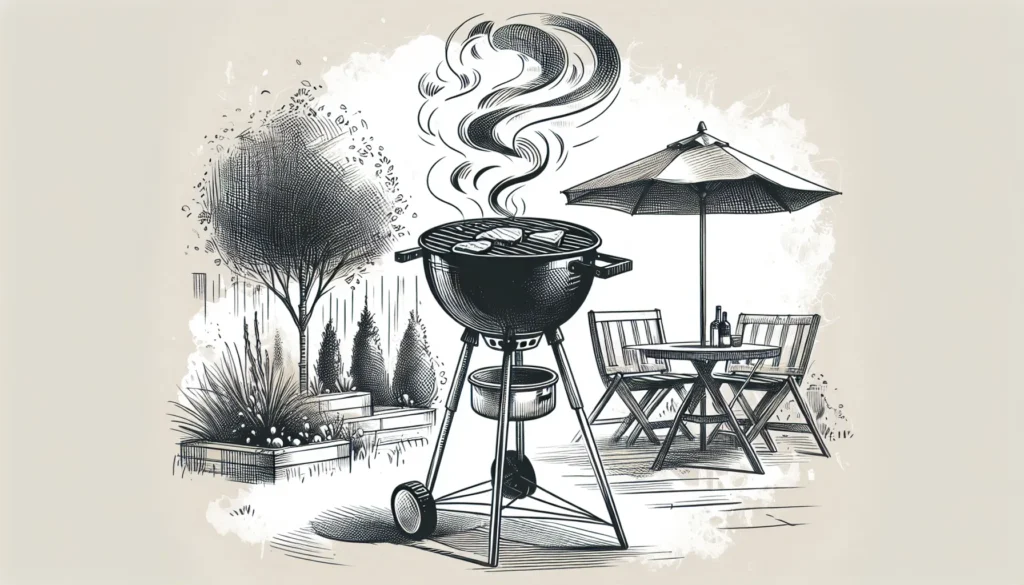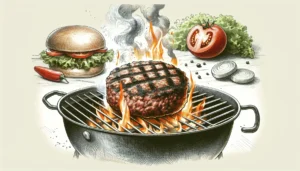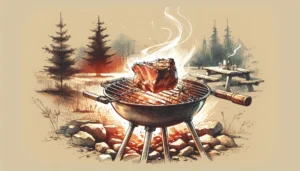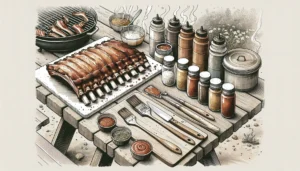Mastering the Basics of Smoking Meat: A Beginner’s Guide

Smoking meat is an ancient culinary art that infuses flavors into various cuts of meat, creating mouth-watering, tender results. If you’re new to this cooking technique, this comprehensive guide offers essential tips and techniques to get you started on your smoking journey.
Essential Equipment for Smoking Meat
Getting started with smoking meat requires some essential equipment. One prominent option is the Mueller Portable Charcoal Grill and Smoker. This compact and efficient smoker is particularly advantageous due to its portability and ease of use, making it a great choice for beginners.
Grills and Smokers
- Charcoal Smokers: A traditional choice, these provide that classic smoky flavor. They require careful monitoring of temperature and airflow.
- Electric Smokers: Easy to use and maintain, these smokers offer consistent temperature control, making them perfect for beginners.
- Pellet Smokers: Combining convenience and flavor, pellet smokers use wood pellets to generate both heat and smoke.
Additional Accessories
To make your smoking experience as smooth as possible, consider accessories such as grilling gloves. These are essential for handling hot equipment safely. You’ll also need meat thermometers, wood chips or pellets, and appropriate utensils like tongs and spatulas.
Selecting the Right Wood
The type of wood you choose significantly impacts the flavor of your smoked meat. Each type of wood offers a unique flavor profile, and some are better suited to specific types of meat.
- Hickory: Strong and smoky, great for pork and ribs.
- Applewood: Mild and sweet, perfect for poultry and fish.
- Oak: Medium smoky flavor, versatile for most meats.
- Mesquite: Intense and earthy, suitable for beef but should be used sparingly.
For smoke tubes, which are excellent for infusing rich smoky flavor into your barbecue, using the right type of wood chips can make a significant difference in the resulting taste of your meat.
Temperature Control
Maintaining the right temperature is crucial for smoking meat. Most smoking is done at a low temperature over an extended period (low and slow). Here’s how to manage it:
Setting Up the Temperature
- Preheat Your Smoker: Preheat your smoker to the desired temperature before placing the meat inside.
- Use a Thermometer: Use a meat thermometer to ensure your meat reaches the safe internal temperature. An oven thermometer can also help monitor the smoker’s internal conditions.
Managing Fluctuations
- Vents and Dampers: Adjust vents to control oxygen flow and maintain a steady temperature.
- Water Pans: Placing water pans in the smoker can help regulate the temperature and add moisture to the air, preventing the meat from drying out.
- Checking Coals or Pellets: Regularly check your fuel source and add more as needed to maintain consistent heat.
Timing and Patience
Smoking meat is a slow process that requires patience. Depending on the cut and type of meat, smoking can take anywhere from a few hours to an entire day. Here are some general tips:
- Plan Ahead: Factor in the smoking time when planning your meal.
- Avoid Peeking: Every time you open the smoker, heat and smoke escape, prolonging the cooking time.
- Resting the Meat: After smoking, let the meat rest for at least 15-20 minutes. This allows the juices to redistribute, ensuring a moist and flavorful result.
Practical Tips for Beginners
- Start with Simple Recipes: Choose basic cuts like ribs or chicken to practice before moving on to more challenging meats like brisket.
- Keep a Log: Document your smoking sessions, noting down the type of meat, wood, temperature, and duration. This helps in refining your technique.
- Experiment with Rubs and Marinades: Enhance the flavor of your meat with different rubs and marinades. Start with simple combinations and gradually explore more complex flavors.
Safety First
Always prioritize safety when smoking meat. Ensure your smoker is placed on a stable, non-flammable surface and keep a fire extinguisher nearby. When handling hot equipment, use appropriate protective gear, such as heat-resistant grilling gloves.
Conclusion
Mastering the art of smoking meat takes practice and patience, but with the right equipment, wood, temperature control, and timing, you’ll achieve delicious results. Remember to start simple, experiment with flavors, and always prioritize safety. With these fundamentals, you’ll be well on your way to becoming a proficient smoker, capable of creating mouth-watering smoked meats that impress family and friends.
Related Articles
- Why Do You Need Grilling Gloves? Buying Guide
- Mueller Portable Charcoal Grill and Smoker Pros and Cons
- Consider When Choosing The Right Grill Basket
- Complete Guide and Tips About Barbecue Grills, Accessories and Recipes
By following this guide and exploring additional resources, you’ll be well-equipped to embark on your smoking journey and achieve flavorful, tender results every time.



